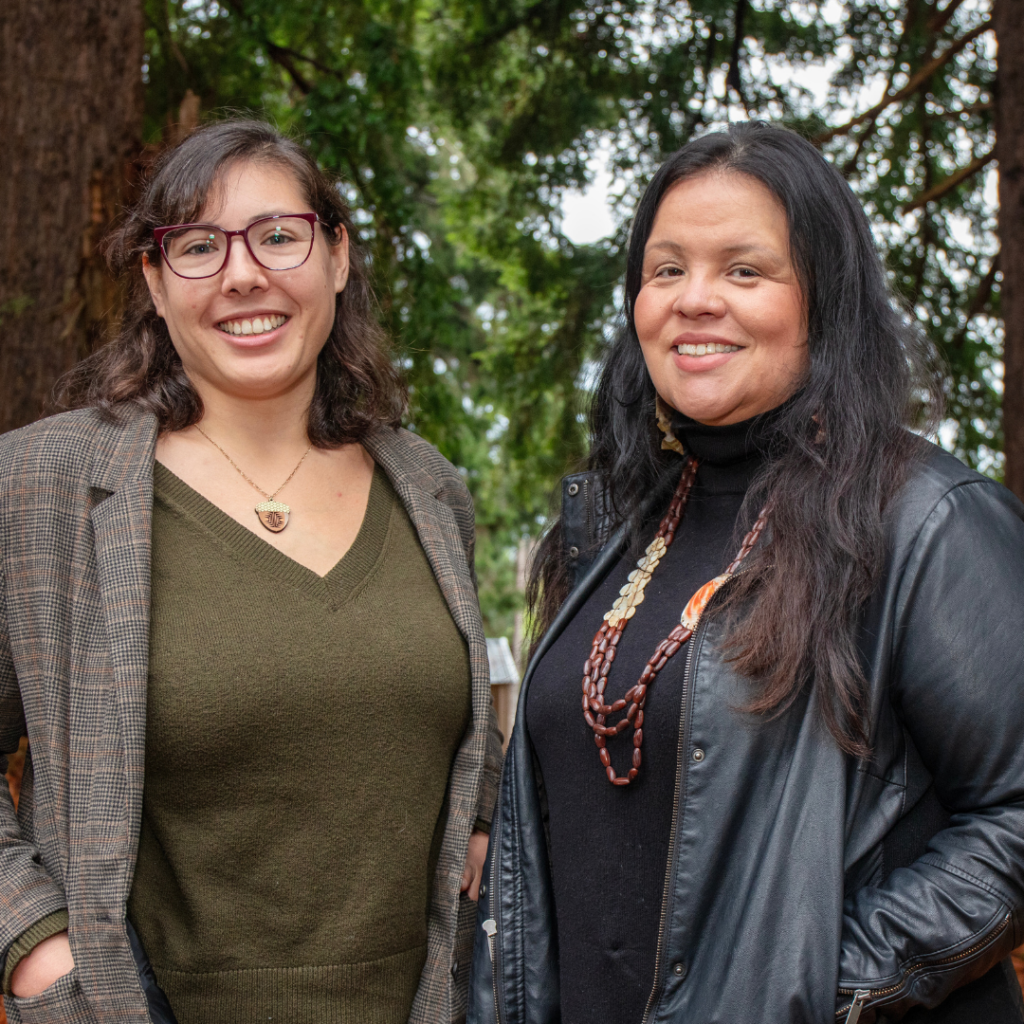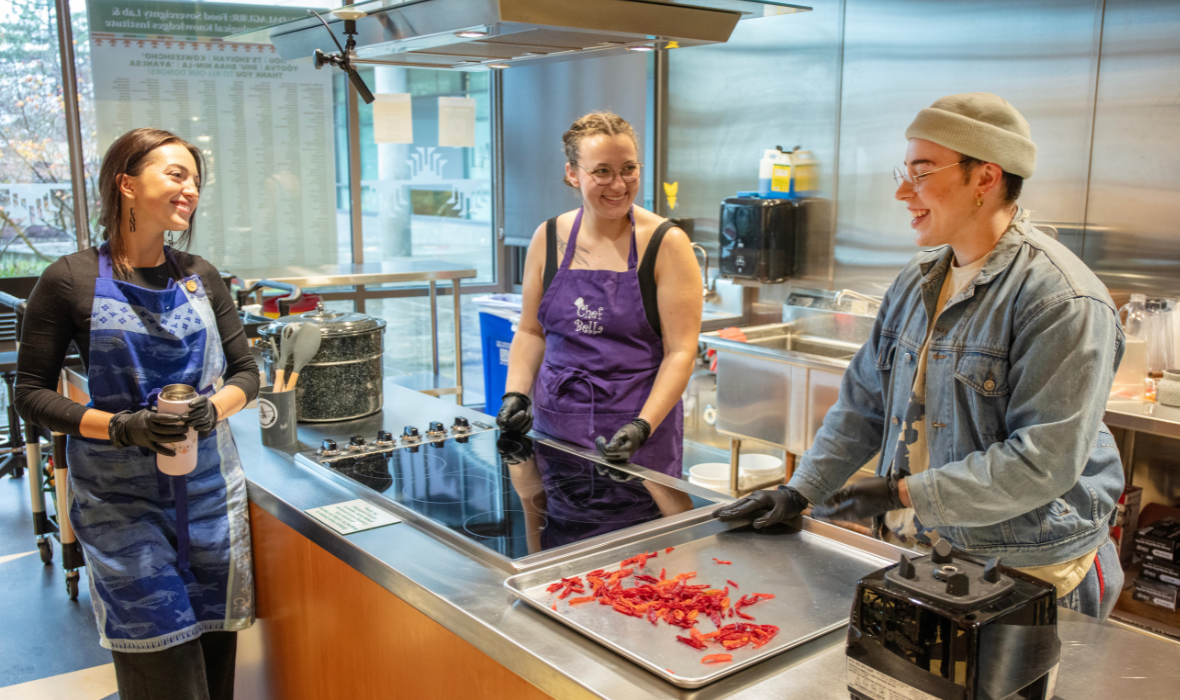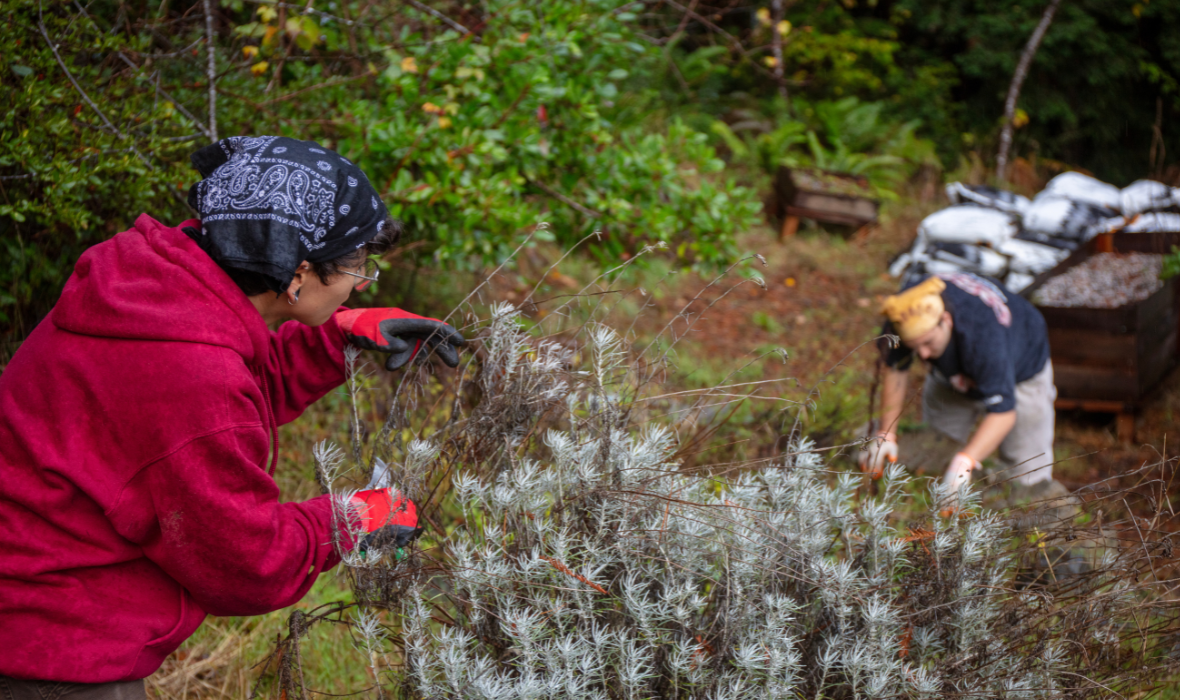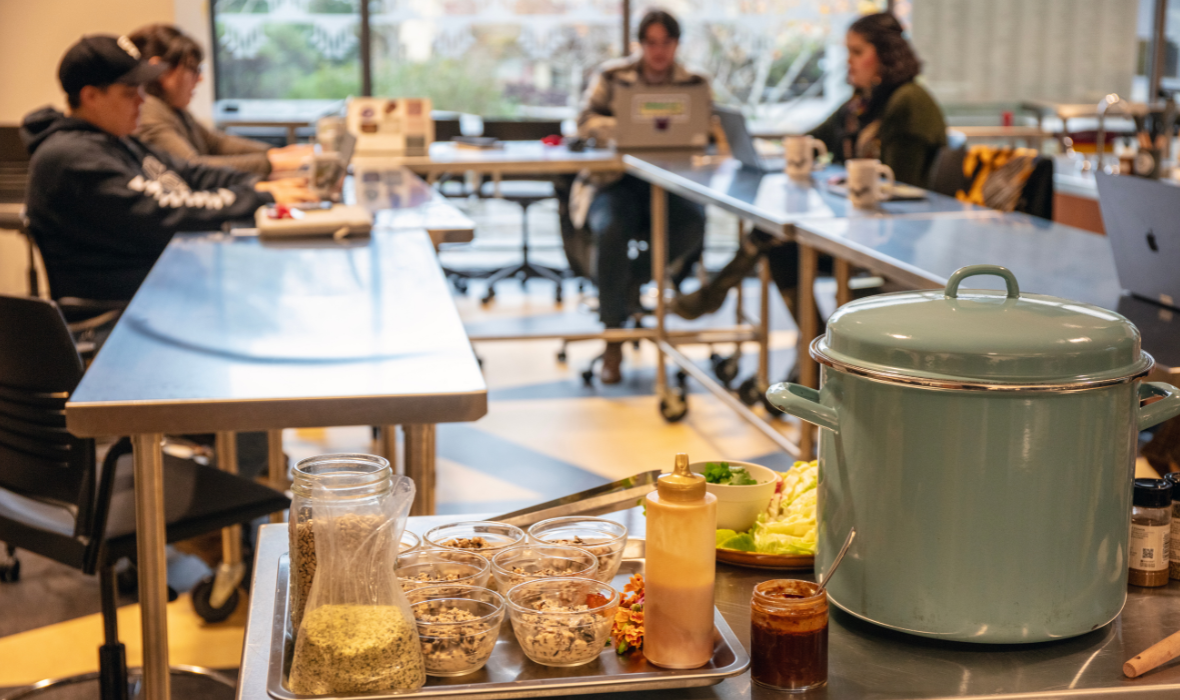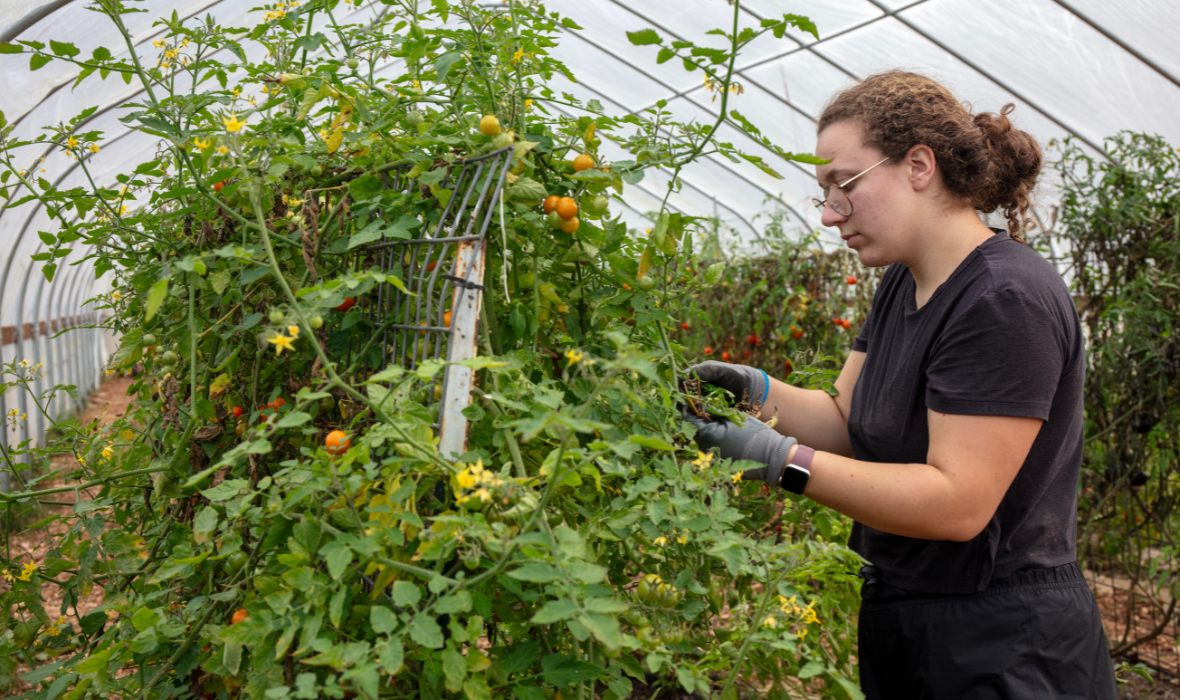Improving community well-being through Indigenous knowledges and food sovereignty
Overview
Both Cutcha Risling Baldy, PhD (enrolled Hoopa Valley Tribe, Yurok/Karuk) and Kaitlin Reed, PhD, (enrolled Yurok Tribe, Hupa/Oneida) were born in Humboldt County and each felt strong connections to their cultures. For Risling Baldy, her deep involvement with her community includes the revitalizing of the Flower Dance. After moving away as a child, Reed was excited to return home as an adult to work for the Yurok Tribe. The leaders initially crossed paths while students at UC Davis, and later reconnected as faculty at Cal Poly Humboldt, driven by a shared mission to support Native American students and tribes. Together, they mentor students, guiding them through research, project development, and advocacy, while also fostering collaborations that address community needs. On a mission to indigenize the Cal Poly Humboldt campus and extend the university’s resources to support the broader Indigenous community, the leaders now serve as co-directors of Rou Dalagurr: Food Sovereignty Lab & Traditional Ecological Knowledges Institute (Rou Dalagurr). Through their leadership, they have created transformative spaces like the Food Sovereignty Lab and Wiyot Plaza and mentored students to lead impactful initiatives that integrate Indigenous knowledge and practices into both academia and the community.
“The Food Sovereignty Lab is about focusing on Indigenous sciences as something that is worthy of being studied.”
“When people ask, ‘What does an Indigenous-managed forest or garden look like?’ We want them to be able to walk through this corner of campus and see for themselves.”
Primary Regions Served
Challenge
- Food is deeply tied to identity, community, and health for Indigenous people. The loss of ancestral land and traditional food systems has worsened the health and well-being in these communities. Indigenous peoples in California now experience disproportionately high rates of chronic diseases, including the highest prevalence of diabetes among any racial or ethnic group.[1]
- Cultural disconnection and fear of alienation are among the barriers contributing to fewer Native Americans attending college.[2] Native American college-going rate is about half that of other ethnic groups, and only 42% graduate from college within six years, compared to 64% for all students.[3]
- Indigenous Sciences and Knowledge are often undervalued compared to Western sciences, particularly in academic settings. This results in a missed opportunity for students, and future leaders, to learn from and collaborate with communities that have stewarded North American lands for millennia [4]
Innovation
- In their roles as Associate Professors and Co-Directors of Rou Dalagurr, Risling Baldy and Reed advise student research and food sovereignty projects that help the students and the community connect with traditional foods and Indigenous health.
- Risling Baldy and Reed helped establish California’s first university science lab dedicated to Indigenous food and knowledge, featuring a commercial kitchen, workshop space, plant drying racks, dehydrators, a seed bank, and Indigenous art.
- The leaders and their students secured the first outdoor space use agreement at Cal Poly Humboldt for an area now called Wiyot Plaza, which includes a patio, garden, and small forest, managed by Rou Dalagurr with input from a community advisory committee.
Impact
- Risling Baldy and Reed have built bridges between the university and the Indigenous community, extending university resources to the community and helping make the campus one Native youth can attend without feeling separated from their culture.
- Over 200 community volunteers have built and maintained the on-campus Indigenous Garden, including constructing its redwood beds and planting medicinal plants and herbs.
- An indication of the area becoming a site for experiential learning, an environmental justice course has conducted forest management practices in Wiyot Plaza. Risling Baldy and Reed have also hosted salmon cooking events at Wiyot Plaza’s firepit, going through many hoops to get it permitted, including writing a new campus policy to allow fire.
- Another student project, Wiyot Food Boxes, created and delivered 125 food boxes filled with regional Indigenous food and recipe cards — including blueberry jam created in Risling Baldy’s Food Sovereignty course – to Indigenous people in need.
- Rou Dalagurr’s Food for Indigenous Futures is a mental health and wellness initiative that aims to reduce drug and alcohol abuse through youth camps and educational programs that connect youth with their land, traditions, and community.
Opportunity
- Risling Baldy and Reed aim to continue to transform Wiyot Plaza into a vibrant gathering space complete with more pop-up events, outdoor film screenings, further established garden and fire pit areas, and demonstrations of Indigenous land management practices.
- The leaders hope to increase awareness and welcome more visitors to the Lab and Wiyot Plaza, envisioning it as a model of how institutions can co-manage a space with the Indigenous community that other schools can replicate.
- Leveraging lessons learned in the pandemic about online engagement, the Lab aims to expand its impact by creating online content and reaching new communities.
The written profile and video reflect the work of the leader(s) the year they received a Leadership Award. Please contact the leader(s) for current information.
